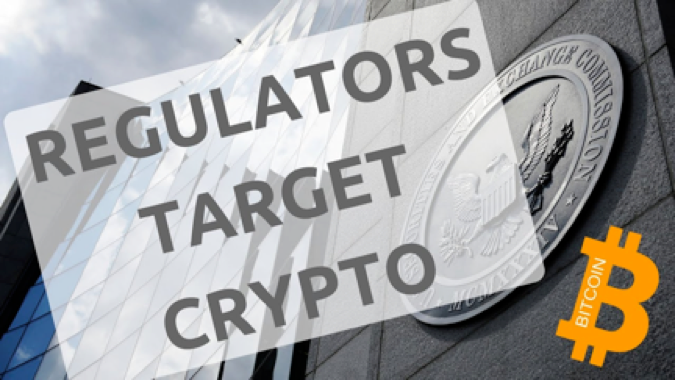Early Bitcoin zealots waxed eloquently about destroying the power that central banks wield over our financial lives and the value of our assets. Fervent revolutionaries were in full force, singing anti-banking slogans and threatening to replace fiat currencies across the globe. Is it any wonder that regulators came at Bitcoin with a barrage of attacks in every jurisdiction? As much as cryptocurrencies want to believe that they are a new kind of fish and a disruptive technology, their path is not new. They can be regulated.

The libertarian appeal that no one could control cryptocurrencies, even the ones that issued the coins, has died down a bit on the fervor meter. Cryptocurrencies are big business now. There are over 1,500 different tokens in circulation, each with its own unique attributes. The market cap for all coin systems hovers around $220 billion. These are not small numbers for what Jamie Dimon, the CEO of JPMorgan Chase, has called a “scam.” Valuations may be manipulated by limiting supply, but price volatility is the real issue, and may be an incurable one. How do you protect the public from wild volatility?
Regulators are consumed with this issue and the level of fraud that has infiltrated the industry. Legislation is constantly being rewritten to define new lines of attack, but basic definitions seem blurred. For example, is Bitcoin a currency, a commodity, or a security? The answer determines which organization has regulatory oversight and under which statutes. It also is pertinent in deciding how gains and losses will be taxed, what disclosures are required before sales can be closed, and if banking secrecy laws are being followed, i.e., money laundering and funding terrorist organizations. These conditions must be adjudicated in every jurisdiction on the planet.
The lack of control issue is anathema to governments that wish to control the flow of capital beyond their national borders. Russia and China are prime examples where cryptos are permitted one day, then banned the next. There is no consistency. As one insider put it: “At the moment, there is no joint international approach to Bitcoin, and its regulation and legal status will depend on your country of residence.” Cross-border transactions only compound the issues at hand.
What are other concerns? Anonymity and the “Dark Web” confound regulators. Law enforcement officials regarded Bitcoin as an enabler for criminal activity. The FBI soon shut down the infamous “Silk Road” Bitcoin marketplace for supporting illegal transactions. No audit trail exists, nor does transparency, such that cryptocurrencies in many cases have become more important as private stores of value, rather than acting as a transactional currency. Wildly gyrating prices only enhance the former use over the latter, part of the reason that asset bubbles formed in 2017, and soon burst.
The U.S. Commodity Futures Trading Commission (CFTC) has categorized Bitcoin as a commodity, and a U.S. judge recently sided with the CFTC, choosing not to rely on what was in law books. Initial Coin Offerings (ICOs), however, are another matter. Like it or not, several courts and judges have ruled that buying a token in an ICO is the same as buying a share of the business, a substance over form ruling. ICOs must follow basic registration and disclosure requirements that apply to any security sold to the public.
What is the future of regulation in the cryptocurrency space? Due to immense fraud and suspected money laundering, regulators are focused heavily on the ICO market. The momentum of ICOs in the U.S. dipped after the SEC ruled against them, but they appear to be making a slow, but determined comeback. ICOs have muddied the regulatory waters around the world. Not all regulators agree, since some are closed, as in China, or strict, as in the U.S., or somewhere on the liberal end. Confusion may persist regarding their defined nature under the law, but cryptocurrencies are here to stay.